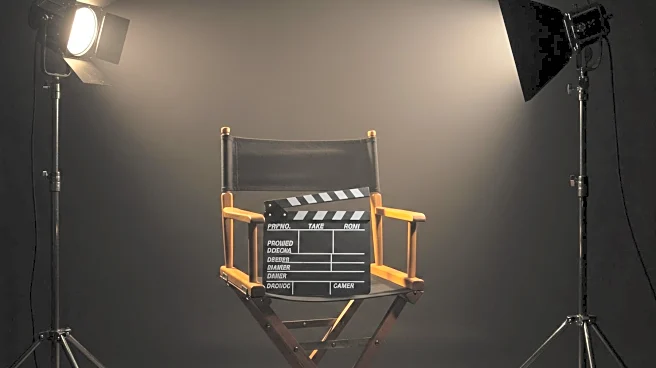What's Happening?
Denzel Washington, a renowned actor, is starring in Spike Lee's latest film 'Highest 2 Lowest,' where he plays a music mogul involved in a ransom plot. In a recent interview, Washington discussed his career choices, particularly during the mid-1990s when he took on roles primarily for financial reasons to support his family. Despite some less successful films during that period, Washington's career includes notable works such as 'Crimson Tide,' 'Philadelphia,' and 'The Pelican Brief.' His latest collaboration with Spike Lee marks their fifth project together, with the film set in the New York music industry. The plot revolves around Washington's character, David King, who faces a moral dilemma when his chauffeur's son is mistakenly kidnapped instead of his own.
Why It's Important?
Washington's reflections highlight the balance between artistic integrity and financial necessity, a common theme in the entertainment industry. His career trajectory underscores the challenges actors face in maintaining artistic credibility while ensuring financial stability. The film 'Highest 2 Lowest' also touches on contemporary issues such as the impact of technology on the music industry, with Washington's character expressing skepticism towards AI-generated music and social media. This narrative resonates with ongoing debates about the influence of technology on creative industries, making the film relevant to current cultural and economic discussions.
What's Next?
The film 'Highest 2 Lowest' is set to release in U.S. cinemas on August 15, followed by a debut on Apple TV+. As the film enters the market, it may spark discussions about the ethical and financial dilemmas faced by individuals in high-stakes industries. Additionally, the film's release strategy, involving both theatrical and streaming platforms, reflects the evolving landscape of film distribution, which could influence future industry practices.
Beyond the Headlines
The film's exploration of technology's role in the music industry raises questions about the future of creative professions in the digital age. As AI and social media continue to reshape industries, the film prompts audiences to consider the implications of these changes on artistic expression and cultural production. Washington's personal stance on technology, as expressed in the interview, adds a layer of authenticity to the film's narrative, potentially influencing audience perceptions.









